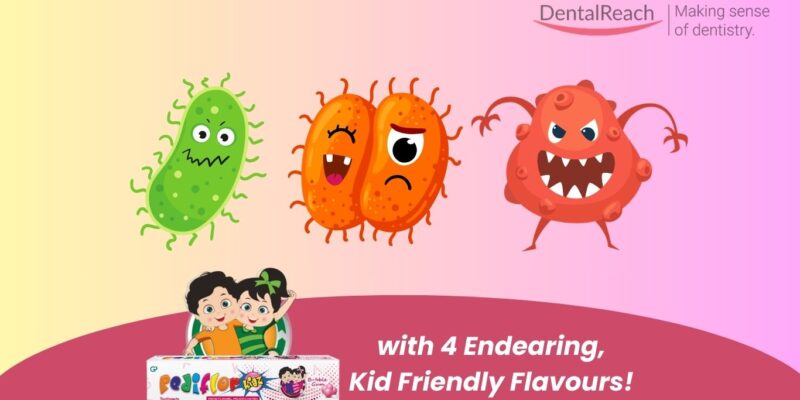The human mouth is a complex ecosystem teeming with bacteria, many of which play crucial roles in maintaining oral health. However, not all of these microorganisms are benign. Recent research has unveiled how one common oral bacterium has outsmarted the immune system, leading to significant dental and systemic health issues. This discovery sheds light on the sophisticated mechanisms employed by these bacteria and underscores the importance of maintaining good oral hygiene.
The cunning nature of Porphyromonas gingivalis
One of the most notorious culprits in periodontal disease is Porphyromonas gingivalis (P. gingivalis). This gram-negative bacterium is a major player in the development of chronic periodontitis, an inflammatory condition that affects the tissues supporting the teeth. P. gingivalis has developed several strategies to evade the host’s immune response, making it a formidable pathogen.
Immune Evasion Tactics
- Subversion of immune cells: P. gingivalis can manipulate immune cells such as macrophages and dendritic cells to avoid destruction. It alters their signaling pathways, preventing them from mounting an effective response.
- Inhibition of complement system: The complement system is a part of the innate immune response that helps clear pathogens from an organism. P. gingivalis produces enzymes that degrade complement proteins, thereby inhibiting this critical defense mechanism.
- Biofilm formation: P. gingivalis forms biofilms—a structured community of bacterial cells enclosed in a self-produced polymeric matrix—on tooth surfaces and below the gum line. Biofilms protect bacteria from both mechanical removal and antimicrobial agents.
Masterstroke by P gingivalis
Current research on immune evasion tactics found that P. gingivalis exploits the integrin-associated protein CD47 to interfere with the body’s immune response. CD47, known as a ‘don’t eat me’ signal in cancer cells, plays a crucial role in protecting P. gingivalis from being destroyed by immune cells. Additionally, the study revealed that the bacterium induces the production of thrombospondin-1 (TSP-1), a ligand that further suppresses immune activity, particularly neutrophil-mediated bacterial clearance.
Professor Nussbaum, Faculty of Dental Medicine at the Hebrew University of Jerusalem, said: ‘Our findings suggest that P. gingivalis uses CD47 to hijack immune signalling pathways, effectively disabling the host’s ability to clear the infection. This mechanism helps explain why this bacterium thrives in inflammatory environments, leading to chronic periodontitis and potentially contributing to other systemic diseases.’
Using both in vitro and in vivo models, the researchers demonstrated that blocking CD47 or TSP-1 significantly enhanced bacterial clearance by the immune system.
Implications for oral and systemic health
The ability of P. gingivalis to outwit the immune system has profound implications for both oral and overall health.
Oral health impacts
Chronic periodontitis caused by P. gingivalis can lead to tooth loss if left untreated. The persistent inflammation damages the soft tissue and bone that support teeth, resulting in loosening or even loss of teeth.
Systemic health connections
Emerging evidence suggests that oral infections caused by bacteria like P. gingivalis are linked to several systemic conditions:
- Cardiovascular diseases: Inflammatory molecules produced during periodontal infections can enter the bloodstream, contributing to arterial inflammation and plaque formation.
- Diabetes: There is a bidirectional relationship between diabetes and periodontal disease; each condition exacerbates the other.
- Rheumatoid arthritis: Chronic inflammation associated with periodontal disease may trigger or worsen rheumatoid arthritis symptoms.
- Alzheimer’s disease: Some studies suggest that chronic periodontitis might be linked to cognitive decline due to inflammatory mediators entering the brain.
Strategies for prevention and management
Given its ability to evade our natural defenses, combating P. gingivalis requires more than just routine brushing and flossing.
Professional dental care
Regular dental check-ups are essential for early detection and management of periodontal disease:
- Scaling and root planing: These deep-cleaning procedures remove plaque and tartar build-up below the gum line.
- Antimicrobial treatments: Dentists may prescribe antibiotics or antimicrobial mouth rinses to reduce bacterial load.
Improved personal hygiene practices
Adopting comprehensive oral hygiene routines can help control bacterial populations:
- Brushing twice daily with fluoride toothpaste
- Flossing daily
- Using antiseptic mouthwash
Lifestyle modifications
Certain lifestyle changes can also reduce risk factors associated with periodontal disease:
- Quit smoking: Tobacco use significantly increases susceptibility to gum infections.
- Maintain a balanced diet: Nutrient-rich foods support overall immunity and gum health.
- Manage stress levels: Chronic stress weakens immune function, making it easier for pathogens like P. gingivalis to thrive.
Conclusion
Understanding how common oral bacteria like Porphyromonas gingivalis outwit our immune systems highlights the need for vigilant oral care practices and regular professional interventions. By staying informed about these microbial adversaries’ tactics, we can better protect ourselves against their insidious effects on our dental—and overall—health.
References
How a common oral bacterium outsmarts the immune system. Br Dent J 238, 297 (2025). https://doi.org/10.1038/s41415-025-8526-5




















Comments